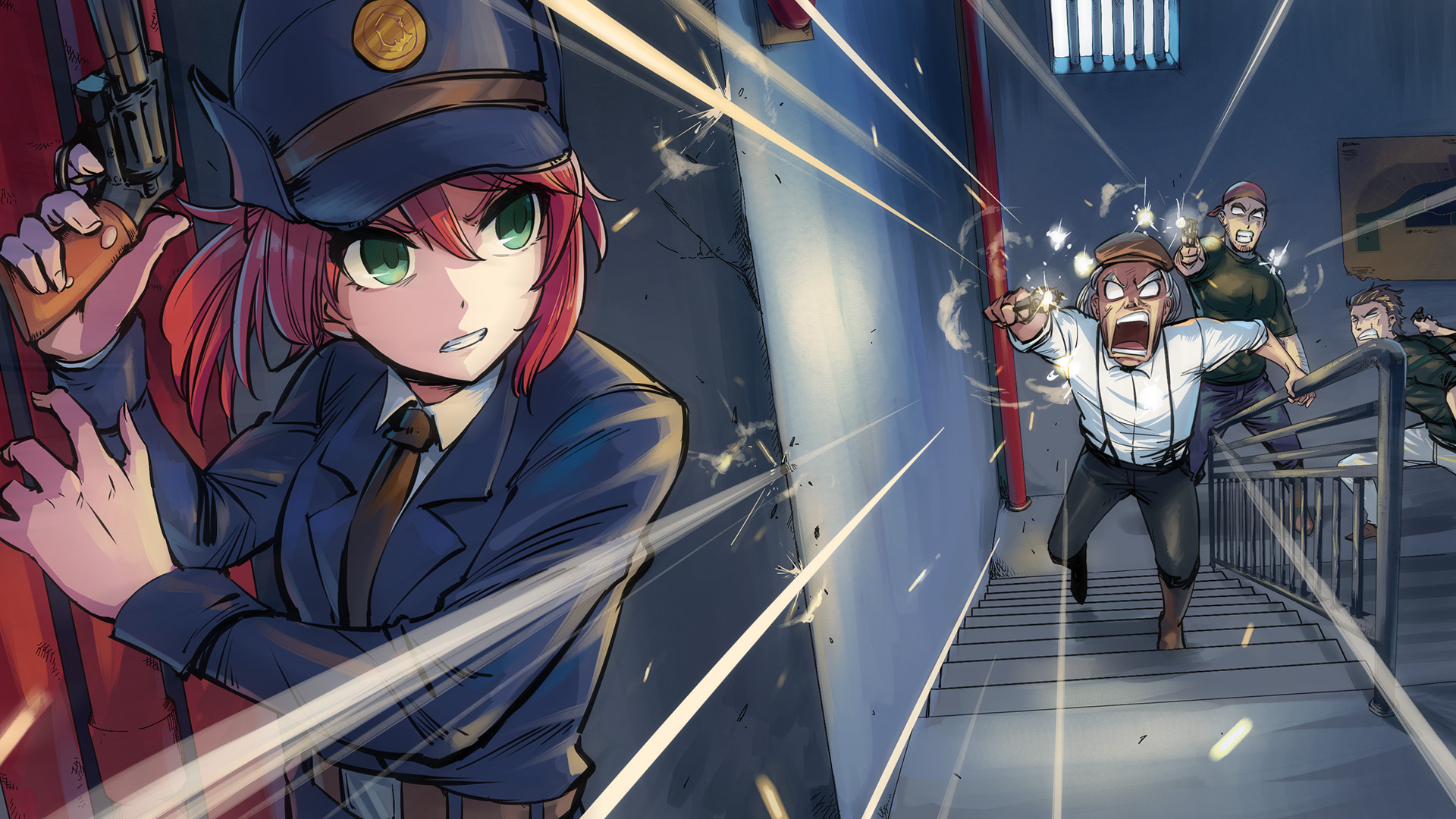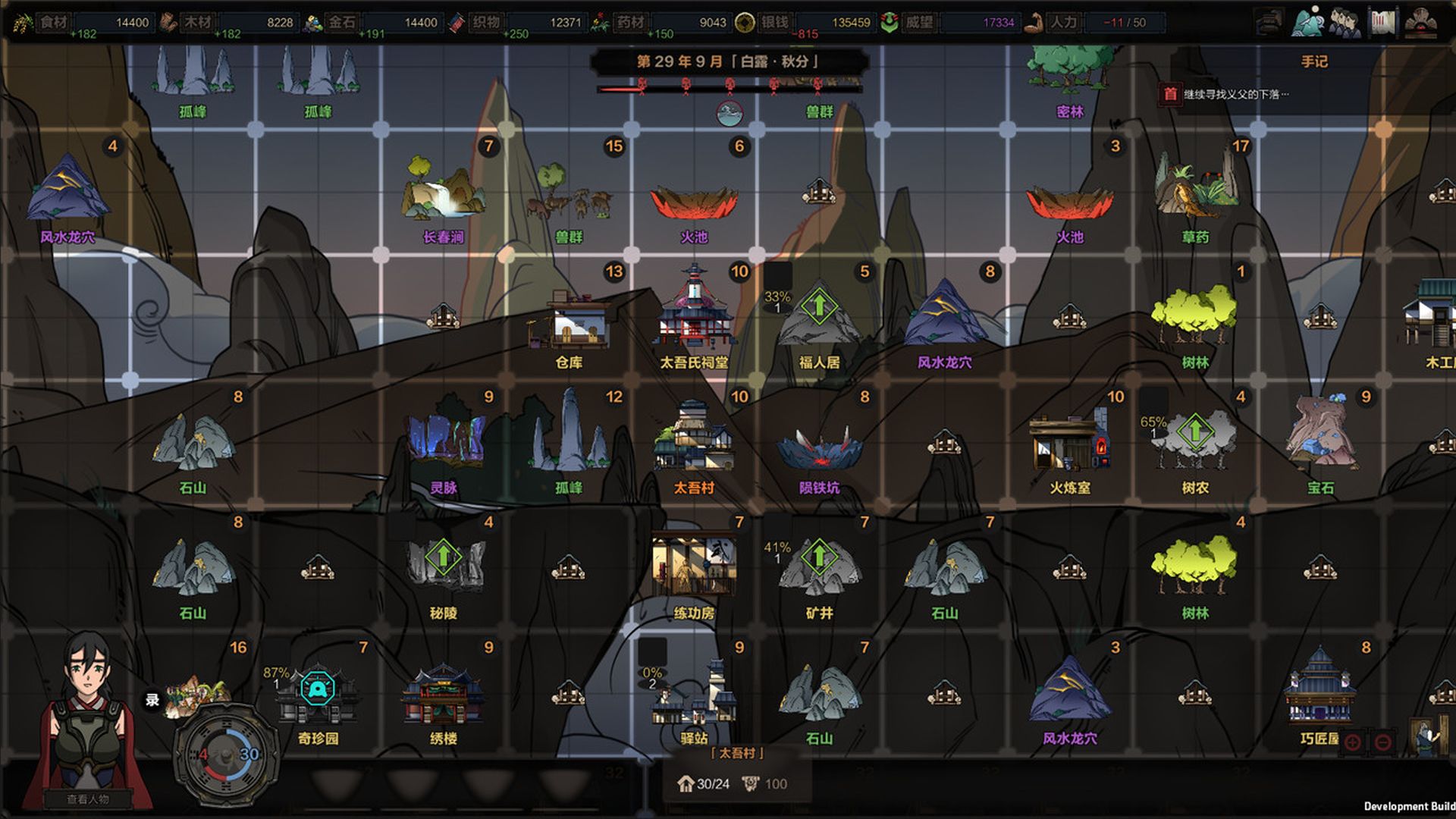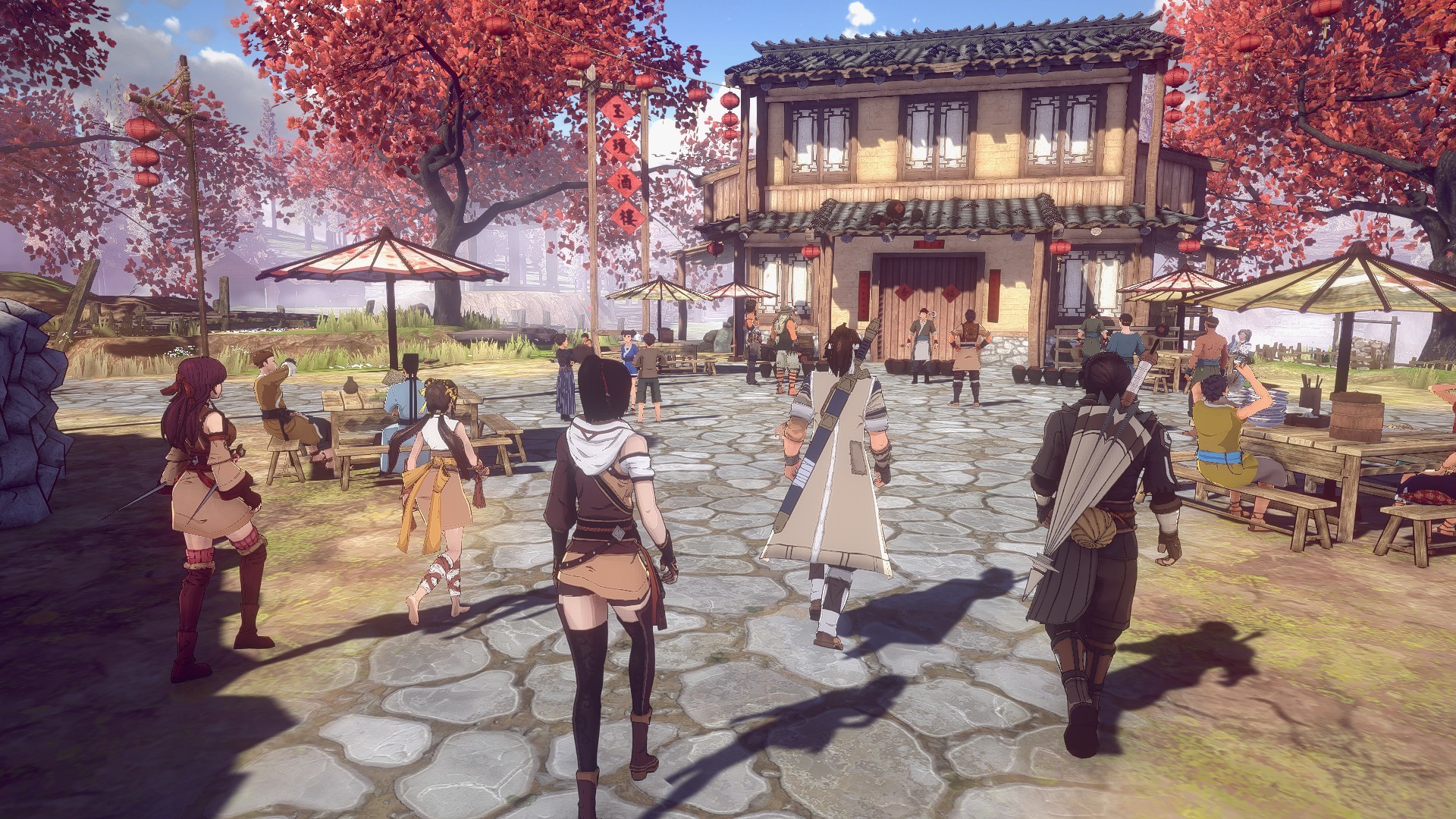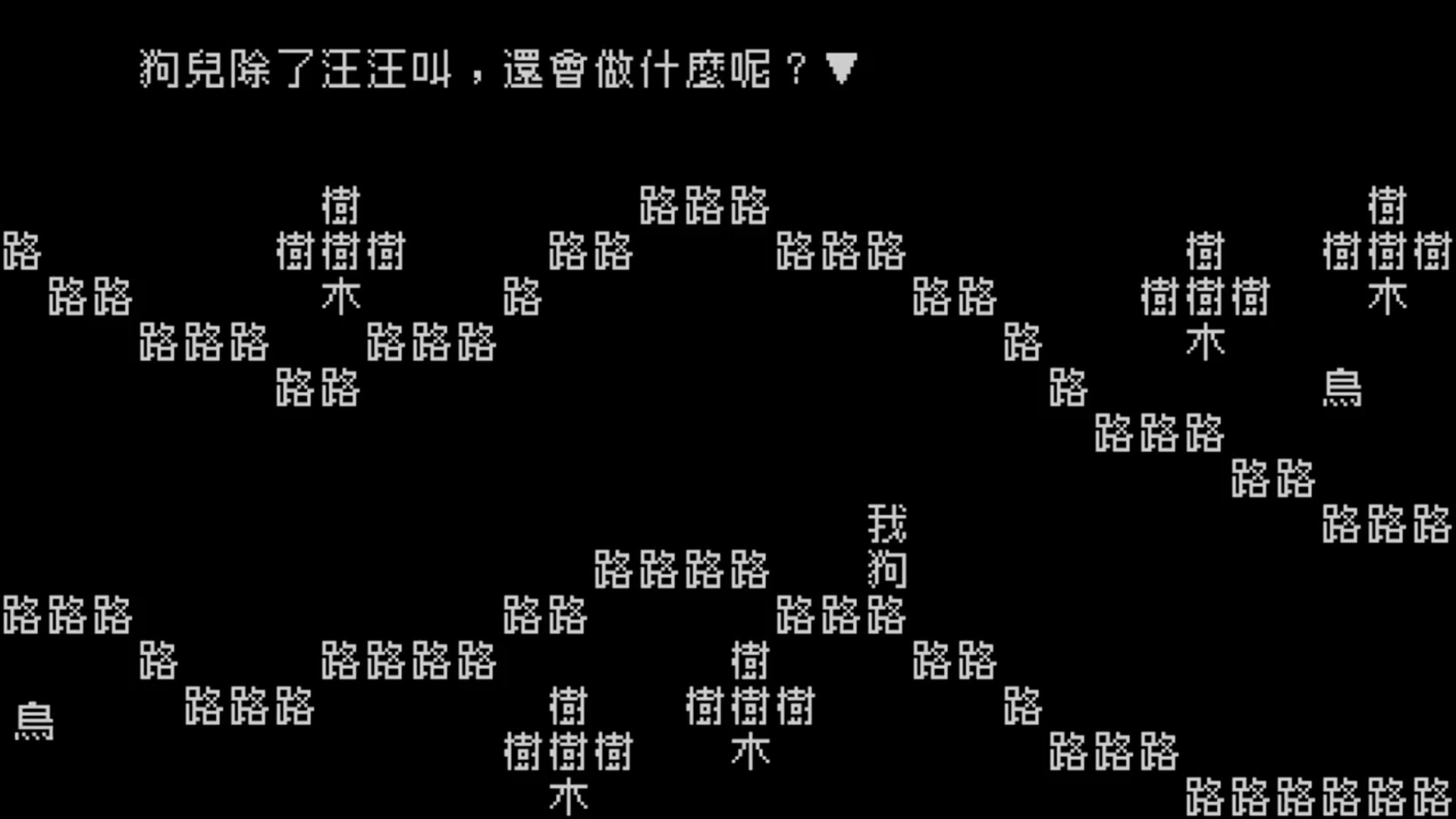We love Genshin Impact, but we're missing out on these 5 great Chinese games
Language yearning

Sign up for breaking news, reviews, opinion, top tech deals, and more.
You are now subscribed
Your newsletter sign-up was successful
Thanks to 720 million Chinese gamers, an entirely new phenomenon has emerged in recent years – where games produced in China can see huge commercial success without ever needing an English translation.
As a result, not every modern Chinese classic has been fully localized a la Genshin Impact. And Western gamers are finally aware of what, to many non-English speakers, is an all too familiar feeling – the pain of waiting for a game you’d love to play to release in your native tongue. Without further ado, here are five brilliant games developed in China that deserve English localization – but which for now, exist tantalisingly out of reach.
Far Away

A visual novel that was released in 2021, set in a steampunk universe where your character starts out as a dock worker. Far Away's strengths lie in the quality of the story and setting, and a branching narrative ensures that each playthrough will be incredibly different.
The story itself exceeds over 500,000 words and 16 endings, while the dark humor throughout ensures it never feels like too much. This potent mix has earned Far Away the coveted “Overwhelmingly Positive” user review designation on Steam, with a whopping 98% of nearly 4,000 reviews being positive.
The sheer scale of this visual novel means that localization is a huge task, especially if the original voiceover is also replaced with English. However, the project is underway, and an English language description is already in place on the Steam store. So hopefully, before too long, more gamers will be able to take themselves Far Away with this fantastically thrilling visual novel.
The Invisible Guardian

The Invisible Guardian is another visual novel – but hear me out, it’s entirely live acted. That’s right, every scene uses real actors and a set to produce a Republican Era Shanghai drama that is effectively an interactive film. You play as a spy, a “traitor” to China on the surface, as you aid the Japanese occupation. But in reality, you are walking on thin ice as you attempt to undermine your Japanese leaders.
It is incredibly easy to die, as one wrong step will raise suspicions
It is incredibly easy to die, as one wrong step will raise suspicions. And in this sense, while the game does offer a variety of decisions, there is not much of a branching narrative – as you will quickly discover that many choices are simply a fast track to death. However, the storyline is gripping enough, and the prospect of playing a fully fledged period drama makes this a unique experience worth trying.
Sign up for breaking news, reviews, opinion, top tech deals, and more.
Unfortunately, it is exactly this unique aspect that would make localization an intensely difficult task. The only realistic method would be to add subtitles or dubbing to the filmed scenes while translating all the player’s choices into English. However, it has now been three years since The Invisible Guardian’s release. It will therefore most likely go down as a game that never got the English support it truly deserved.
The Scroll of Taiwu

An RPG that encompasses a huge variety of genres, which can be focused on depending on the player’s choice. The Scroll of Taiwu's elements are taken from roguelike and management simulation games, and while the complicated combat system isn’t technically turn based, it can be paused at any moment to make changes to your instructions.
It sold over 150,000 units within five days – no mean feat for a developer with no previous titles
Released in early access in 2018 and set in a fictional universe heavily inspired by medieval China and its mythology, The Scroll of Taiwu saw huge success initially. It sold over 150,000 units within five days – no mean feat for a game released only in Chinese by a developer with no previous titles.
It was recently announced that the game would leave early access for a full release in September 2022, and while there’s no further news as of yet, hopefully that launch will bring with it the possibility of an official English translation. If not, then players will have to rely on an existing, fan-made English language mod, the creation of which is testament to this game’s popularity.
Path of Wuxia

A turn-based RPG set in a martial arts academy and featuring anime style graphics, Path of Wuxia was released in early access in May 2020. Players must manage their time wisely, choosing whether to train, study, or undertake missions, among other options. These choices will affect the player’s ability to make friends within the academy, Fire Emblem style.
Combat takes place in a hexagonal map, and there are a variety of influencing factors that keep it interesting throughout – from the choice of different weapons, to character traits and the abilities of the friends who join you in battle. Due to the time restraints set on each playthrough, replay value is high – as different decisions will bring about a vastly different experience. Whether you’re experimenting with different arms proficiencies, or the variety of friends you can make to aid you on the battlefield, it’s easy to spend a lot of time finding out what works across multiple runs.
Word Game

A delightful indie platform-puzzler in which your character is simply the word meaning “I / me” (or more accurately, the equivalent Chinese character, 我). Players must use this character to find clues and change the lines of text surrounding them, in a world built entirely out of words.
It’s a fascinating concept, and one that deservedly won this game many awards
It’s a fascinating concept, and one that deservedly won this game many awards in the Chinese indie game scene. However, it’s also a prime example of a game for which localization is literally impossible. You could give the concept to an English-speaking studio for them to create an entirely new word puzzler – but that’d be where any resemblance to this game ends.
Word puzzles, puns, and plays on words are notoriously untranslatable, so it’s perhaps no big surprise that a game that takes these concepts as its core suffers the same problem. Still, the concept deserves an English language remake, however different that might be – simply due to the fantastic creativity on display.

While none of these games currently support the English language, there’s hope for at least some of them. And for those where a translation is unlikely, non-Chinese speakers will just have to settle with admiring them from afar – hoping that the creativity shown in these games will inspire new, globally available releases.